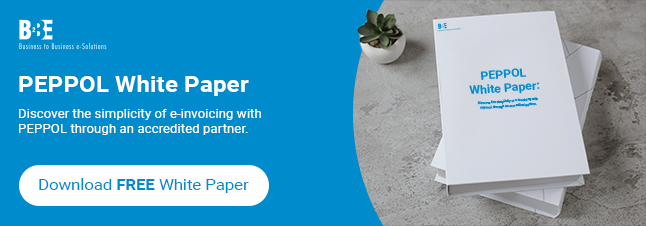In today’s fast-paced business environment, efficiency and automation are key factors in achieving success. One area where organisations can greatly benefit from streamlining their operations is in the invoicing process. Traditional methods of invoicing can be time-consuming, prone to errors, and lacking in standardisation. Fortunately, the advent of electronic invoicing has revolutionised this essential business practice. In this blog, we will delve into the concept of electronic invoicing, its benefits, and explore how the PEPPOL Access Point can unlock easy e-invoicing for businesses.
Understanding Electronic Invoicing
Electronic invoicing, or e-invoicing refers to the automated exchange of invoices between businesses in a digital format. This method replaces the traditional paper-based invoices and offers numerous advantages. Firstly, e-invoicing eliminates manual data entry, reducing the chances of errors and increasing efficiency. It also enables faster invoice processing, resulting in quicker payments and improved cash flow. Furthermore, electronic invoicing promotes environmental sustainability by reducing paper usage and carbon footprint.
In contrast, traditional methods of invoicing, such as paper invoices or PDF attachments sent via email, come with limitations. These methods often involve manual handling, which can lead to transcription errors and delays in processing. Additionally, inconsistencies in formatting and lack of standardised practices can make invoice reconciliation and validation cumbersome tasks for businesses. To overcome these challenges and ensure a seamless invoicing process, a streamlined and standardised electronic invoicing system is essential.
Introducing PEPPOL
PEPPOL, which stands for Pan-European Public Procurement Online, is a network that facilitates secure and standardised e-invoicing. It was initially developed to support public procurement across Europe but has since gained widespread adoption in the private sector as well. The PEPPOL network provides a framework that enables businesses to exchange electronic documents, including invoices, in a secure and interoperable manner.
The role of PEPPOL in electronic invoicing is pivotal. By establishing a common set of standards and protocols, PEPPOL ensures that businesses can seamlessly exchange invoices with their trading partners, regardless of their geographical location or the systems they use. This eliminates the need for multiple bilateral connections and simplifies the entire invoicing process.
Key features and benefits of PEPPOL for businesses include increased data accuracy, enhanced security, and improved traceability. PEPPOL ensures that invoice data is accurately transmitted from the sender to the recipient without any alterations. The network also employs robust security measures, such as encryption and digital signatures, to protect sensitive information. Additionally, PEPPOL provides tracking capabilities, enabling businesses to monitor the status of their invoices throughout the entire delivery process.
PEPPOL Access Point: Easy Electronic Invoicing Made Possible
At the core of the PEPPOL network is the concept of a PEPPOL Access Point. A PEPPOL Access Point is a service provider that acts as a gateway between businesses, allowing them to connect to the PEPPOL network and exchange e-invoices effortlessly. It serves as a bridge between the business’s internal systems and the external world of electronic invoicing.
A PEPPOL Access Point simplifies e-invoicing for businesses in several ways. Firstly, it handles the technical complexities associated with connecting to the PEPPOL network, alleviating the burden on organisations to develop and maintain their own connections. Secondly, a PEPPOL Access Point provides the necessary infrastructure to convert invoices into the required PEPPOL-compliant format, ensuring seamless interoperability.
Moreover, a PEPPOL Access Point offers additional features and functionalities that further streamline the electronic invoicing process. These include automated validation checks, error handling, and real-time monitoring of invoice delivery status. The access point can also facilitate other PEPPOL-related transactions, such as e-orders and e-despatch advice, enhancing the overall efficiency of business operations.
Implementing a PEPPOL Access Point
Implementing a PEPPOL Access Point is a straightforward process that can be accomplished by following a few simple steps:
- Choose a reputable PEPPOL Access Point provider that aligns with your business requirements. B2BE is one such provider offering a comprehensive solution for PEPPOL Access Point services.
- Integrate the PEPPOL Access Point with your existing invoicing or ERP system. This may involve configuring settings and establishing the necessary connections.
- Test the connectivity and ensure that your invoices are correctly formatted and compliant with PEPPOL standards.
- Once the setup is complete, start exchanging e-invoices with your trading partners through the PEPPOL network.
By implementing a PEPPOL Access Point, businesses can streamline their invoicing processes, reduce manual efforts, and improve overall efficiency.
In conclusion, electronic invoicing has emerged as a game-changer for businesses, offering numerous benefits over traditional invoicing methods. The PEPPOL network plays a crucial role in enabling secure and standardised e-invoicing. By leveraging a PEPPOL Access Point, businesses can unlock easy e-invoicing, simplify their operations, and enhance productivity. Take the first step towards efficient e-invoicing by exploring the PEPPOL Access Point solution offered by B2BE.
About B2BE
B2BE delivers electronic supply chain solutions globally, helping organisations to better manage their supply chain processes, providing greater levels of visibility, auditability and control. We’re driven by a passion for what we do, inspired by innovation, and underpinned by a wealth of knowledge. With over 20+ years of experience, the B2BE teams operate worldwide.
For more information, visit www.b2be.com.

